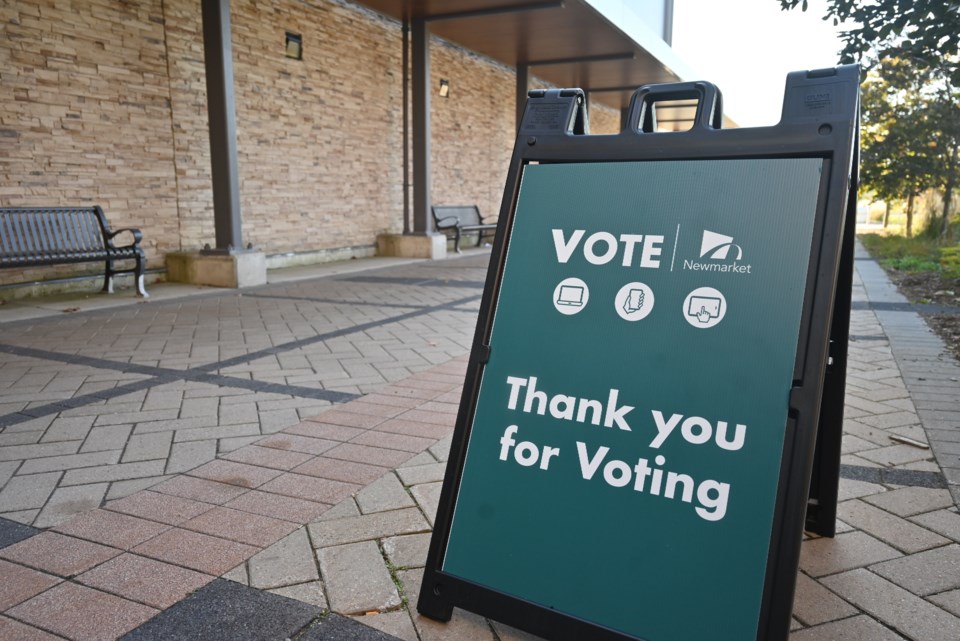Newmarket experienced its worst voter turnout in a municipal election in 46 years.
Only 24.8 per cent of eligible voters cast a ballot in this year’s election, which saw every existing member of Newmarket council either acclaimed or voted back into office. That is a sharp decline from the 33 to 37 per cent turnout seen in the last three municipal elections, a trend experienced across the province. It is also the lowest turnout the town has had in a municipal general election dating back to at least 1976, the earliest turnout included in the town’s last analysis.
For former Newmarket candidate and political observer Bill Kukulewich, it is a disappointing trend.
“There are really good people there that are not getting elected and only 25 per cent, one in four, are putting people in office,” Kukulewich said. “People think their votes don’t matter.”
Turnout has declined across the province over the past decade, reaching a nearly 30-year low in 2018 at 38.3 per cent. Provincewide turnout is not yet available, but many municipalities reported a further decline. East Gwillimbury had a 25.3 per cent turnout, while Aurora had 26.15 per cent. King, the other York Region municipality with an acclaimed mayor, had a 28.5 per cent turnout.
York University professor Robert MacDermid said a number of factors impact low turnout, such as out-of-date voter lists, and depending on the community, voting options.
But incumbency is also a factor.
“The assumption is these are often not real contests because incumbency is such a huge advantage,” he said. “If you held the office before, then chances are you will hold the office again. So why vote?"
There are no term limits in municipal politics, but Kukulewich said there should be more incumbents that consider stepping aside after a few terms.
“We need more people like that, that understand you have to carry the torch for so long and then pass it along.”
The Town of Newmarket put effort into making voting accessible, with a 10-day primarily online voting period. But paper ballots were available by contacting the town office, along with two voting assistance centres. The town also made a point to travel to places such as long-term care homes and offer a mobile voting surface to come to people’s homes if needed.
But all that was not enough to drive more voters to the polls, although the vast majority of ballots cast — 98.59 per cent — were cast online. Only 214 voters, of the 15,221 voters total, cast a paper ballot.
The town’s previous turnout low was in 2003 when only 31.3 per cent of eligible voters cast a ballot. The town’s turnout has tended to be between 30 and 50 per cent, reaching a high of 47 per cent in 1985.
MacDermid said voters can struggle to understand what municipal candidates represent, having to research multiple different ones. He said the lack of a party system hurts turnout in this way.
“I know parties have bad reputations and I agree with a lot of that, but they do help spread a message and they do make clear what the platform of those candidates who carry that label means,” he said.
The trend stands to continue unless municipalities take the problem seriously, MacDermid said. He said they need to find a way to engage citizens more consistently outside of elections as well.
“The trend, as we’ve seen over a significant period of time, it’s falling. Until it falls to a point, we begin to question the legitimacy,” he said.



